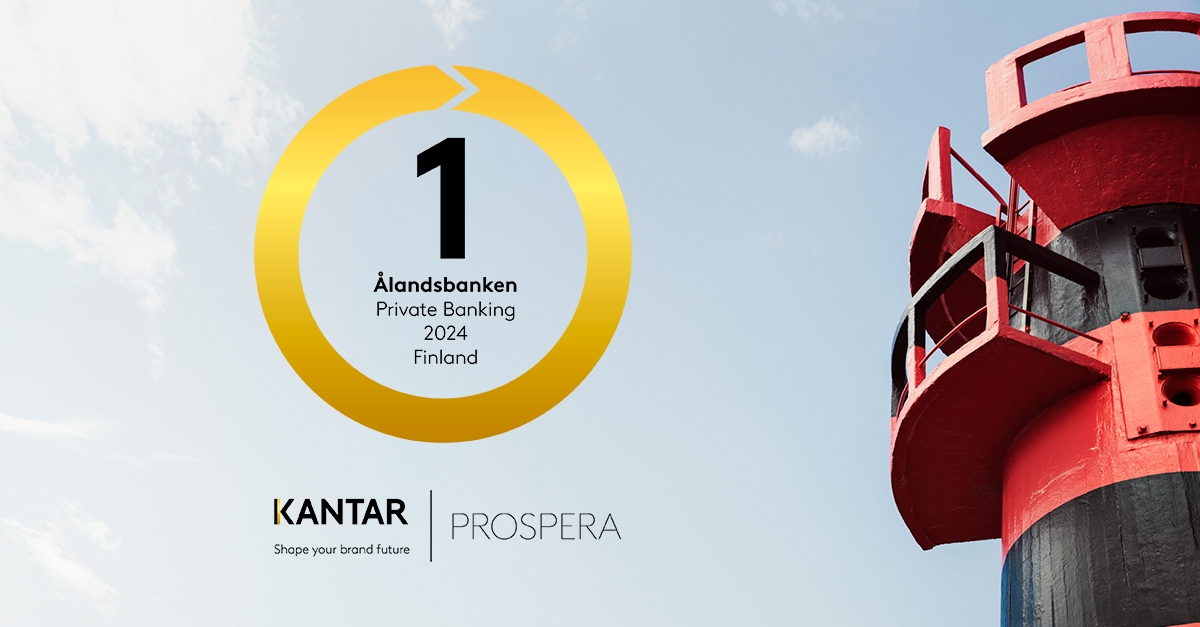Bank of Åland takes its sustainability work to the next level by joining the Science Based Targets initiative
Bank of Åland Plc
Press release
January 15, 2024
Bank of Åland takes its sustainability work to the next level by joining the Science Based Targets initiative
The Bank of Åland has worked with environmental issues for many years and has now also committed itself to establishing Group-wide science-based targets for reducing its greenhouse gas emissions.
Science-based targets
“Science-based targets” mean targets that are in line with what the latest climate science considers necessary in order to limit global warming to 1.5°C above pre-industrial levels. This is urgent, and we cannot wait for new technology or other solutions but must achieve this immediately, using the tools and knowledge that exist today. The Bank of Åland encourages more actors to take on the challenge of halving their carbon dioxide emissions by 2030.
The Science Based Targets initiative
The Science Based Targets initiative (SBTi) is a collaboration between CDP (formerly the Carbon Disclosure Project), the World Resources Institute (WRI), the World Wildlife Fund (WWF) and the United Nations Global Compact. Setting science-based targets through SBTi is also one of the We Mean Business Coalition’s commitments.
The Science Based Targets Network develops science-based targets to protect water, soil, biodiversity and oceans for businesses and climate targets for cities.
More than 4,000 companies around the world have joined SBTI and are working on setting and meeting emission reduction targets in keeping with the 2015 Paris Agreement.
How it works
The process will be carried out in several steps. After a memorandum of understanding is adopted, the next step will be to set emission reduction targets in line with the SBTi criteria. This must be done within 24 months. Once these targets are finalised, SBTi will officially validate the targets. The established targets will then also be presented on the SBTi website.
The task and progress achieved in reducing the Bank of Åland’s emissions can then be continuously monitored, since emissions for the entire Group must be reported and targets must be followed up annually. The Bank of Åland looks forward to further strengthening its efforts to reduce its climate change impact ‒ a challenge that affects us all.
“We are continuing our deliberate efforts to live up to today’s demands and expectations on us as a bank. This task is not always easy and requires continuous proactive decisions on how we want to conduct our operations in a long-term sustainable manner,” says Peter Wiklöf, Managing Director of the Bank of Åland.
Sustainable development principles and initiatives adopted by the Bank of Åland
As early as 1997, the Bank of Åland created its Environmental Account to support ‒ in partnership with its customers ‒ activities that improve the environment, especially in the Baltic Sea region. The Åland Index, the world’s first bank index for monitoring your impact on atmospheric carbon dioxide, is linked to all payment cards that the Bank offers to its customers. The Bank of Åland has also undertaken to adopt the principles and initiatives listed below, which help us to continue pursuing our work in accordance with globally established goals:
- The United Nations Principles for Responsible Investments (UNPRI), which include analysing and reviewing companies to ensure that they adhere to their social and environmental commitments (ESG factors) in accordance with the PRI principles.
- The UN Principles for Responsible Banking (part of the United Nations Environment Programme’s Finance Initiative, UNEP FI).
- The UN-convened NZBA (Net Zero Banking Alliance), which is part of the Glasgow Financial Alliance for Net-Zero (GFANZ) ‒ a global alliance that brings together existing and emerging net-zero initiatives in the financial sector in a sector-wide forum.
- Climate Action 100+, which enables the Bank of Åland ‒ together with other investors ‒ to influence the efforts of the 100 large companies with the highest emissions to change their business models in order to reduce emissions.
By means of shared frameworks, the banking sector can act together and proactively take responsibility for accelerating positive and sustainable change.
For further information, please contact
Peter Wiklöf, Managing Director and Chief Executive, Bank of Åland, tel. +358 40 512 7505
-
Bank of Åland takes its sustainability work to the next level by joining the Science Based Targets initiativeDownload pdf
Press release
15.01.2024


